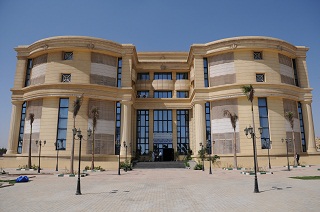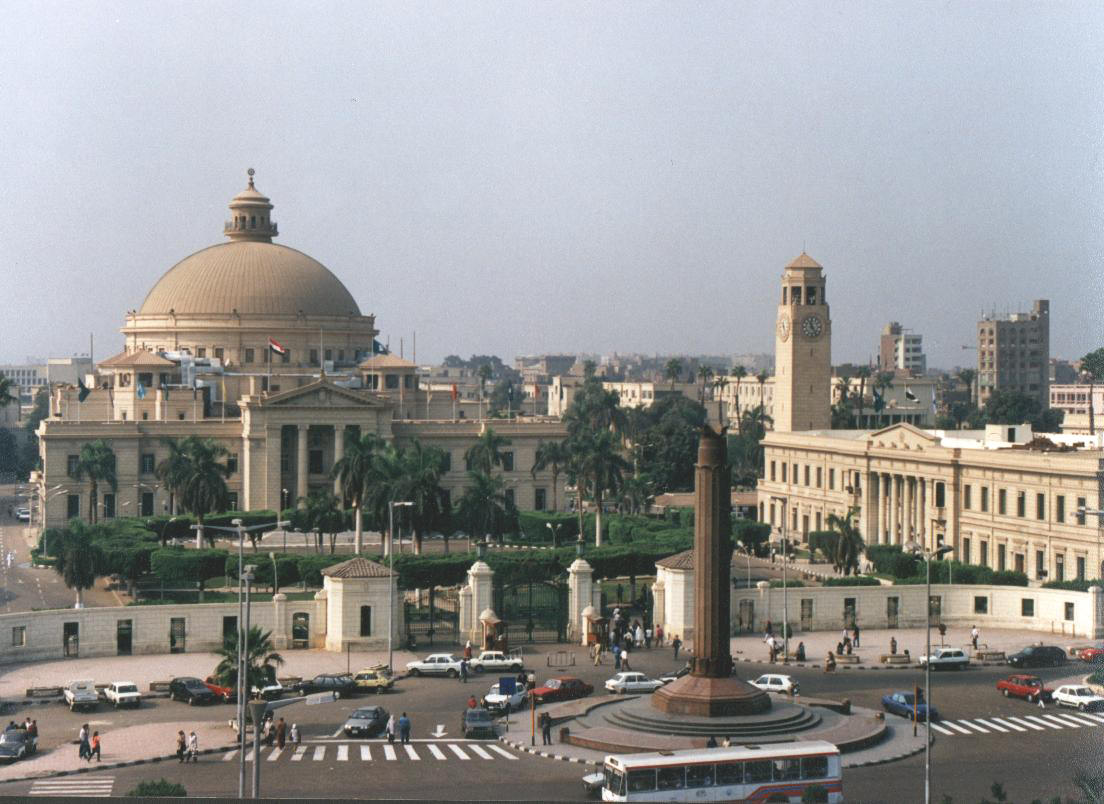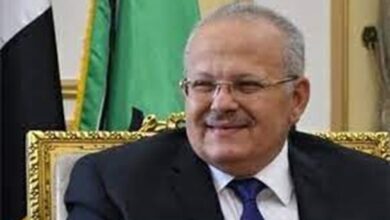Cairo University is littered with campaign material, organizing committees and general election paraphernalia as the first student union elections since the revolution begin.
The site is a new one for many of the students at this campus, where elections have long been seen as a mere formality. After the revolution however, many expect campus politics will change.
“This is the first time we even know about the elections long enough in advance,” said Hussein Afify, a third-year student in the College of Commerce.
The elections are taking place amid ongoing protests. Earlier this week the military forcibly disbanded a sit-in of communications students using batons and electric tazers.
“I am boycotting the elections and any kind of university activity until the dean of the College of Mass Communications steps down,” said Mohamed Hanafy, a fourth-year journalism student.
Wigdan Hanafy, a first-year medical student, said that the sit-in was peaceful, and that they weren’t trying to surround Mass Communications Dean Sami Abdel Aziz.
“Most of the activist students are boycotting any student elections now,” said Hanafy, who was later detained in a military vehicle along with three faculty members including Leila Suweif.
“While we were being attacked last night I heard someone say, ‘aren’t you the teachers from the 9 March Movement (for the independence of universities), we’ll make an example of you, then,’” said Suweif. Hanafy and the professors were released later that night with apologies from the military officer in charge.
Many of the students in other colleges of the university were not clear on the events of the mass communications sit-in, but said that running in the elections is important regardless of what happened.
“This is the first time I see actual elections at our university. It’s very important under all circumstances that we participate,” said Safaa Kamal, a fourth-year business student.
Candidates and students alike said that it was the first time they had seen an open election process on campus. They said previous elections were marred by allegations that State Security Investigations Services chose the candidates and many would-be candidates didn’t even attempt to run because of this.
Students in general complained of not being informed there would be elections and they took it for granted that the Student Union committees list would be mostly appointed.
“Before, they kept a lid on the elections so that no one knew it was happening, this is the first time we have time to campaign and put up posters,” said Mohamed Yahya, a third-year candidate for the Scouts Committee.
Any student with their university or national ID was allowed to vote Friday. Fourth-year students describe the previous elections process as one meant to limit the voting as much as possible.
“We were required to bring four personal ID photos, a photocopy of our government and university IDs along with the originals, as well as a receipt showing that we made our payments,” said Mohamed al-Laithy, a fourth-year Hebrew major. The university also promised to finance campaigns that apply for funding, however many candidates say that they haven’t yet received campaign financing from the school.
Previously the university followed election laws that stipulated that if participation was less than 50 percent, existing committees would appoint the Student Union seats. Now, barring 50 percent participation, there will re-elections, requiring at least 20 percent participation, which would greatly enhance the possibility of having elected representatives.
But some students still suspect foul play. “Our college scheduled a soccer tournament the week of the elections, and it ends today, on the day we vote. Is that what a university who cares about elections would do?” said Hend Adel, a second-year student.
Life at Cairo University sometimes parallels the Cairene reality, and the elections were no different. The Muslim Brotherhood is able to operate with more freedom, and its candidates are thus expected to make more progress. “Last year, my name was removed from the [list of] candidates for no apparent reason,” said Assim Mohsem, a third-year candidate from the Muslim Brotherhood.
The primary competitor is a group known as the Free Listing, which is comprised mainly of Muslim Brotherhood candidates and independents, and those from the old Student Union, which was dissolved after the revolution due to popular demand for elections. Other groups, including the Youth of 25 January, formed after the Student Union was dissolved. That group considers itself to be mostly independent and does not affiliate with a political party.
As is the case with many university elections, there was a notable split between students participating in the elections and those who abstained. Many expressed apathy towards the elections, especially due to the fact that they don’t know the candidates.
“They campaigned for three days. I don’t know who they are and frankly I don’t care. We’ve never seen anything from the student unions,” said Saleh a third-year student of literature. Some students openly admitted they did not know the function of the Student Union.
“I thought they’re supposed to offer help to the students. I heard they’re all appointed by State Security,” said Reham Sharaf, a second-year student.
Some groups, such as the Commerce Students Against Corruption set up a stall with a clear campaign to attract students to vote.
“We’re trying to make the university better. Our general aim is to make sure that we have a university that offers applied knowledge and not just information to memorize and spill out again for an exam,” said Mohamed Abdelraheem, a third-year commerce student.
Abdelraheem and others hope that the election process will lead to a sustained democratic student union system. With the State Security constraints now lifted, many feel the freedom to express themselves politically and artistically.
“I work in a cultural committee and I know that whenever someone would give me an article to be published that was vehemently based on opposing the government, that the university would keep it from being published in our class newspaper,” said Mohamed al-Laithy.
With the shackles of State Security lifted, many expect more openness and change to come. However, with the charged political atmosphere lingering after the military broke up the sit-in Wednesday night, and the short campaign period, students may have to wait until next year’s elections to expect more comprehensive change.




